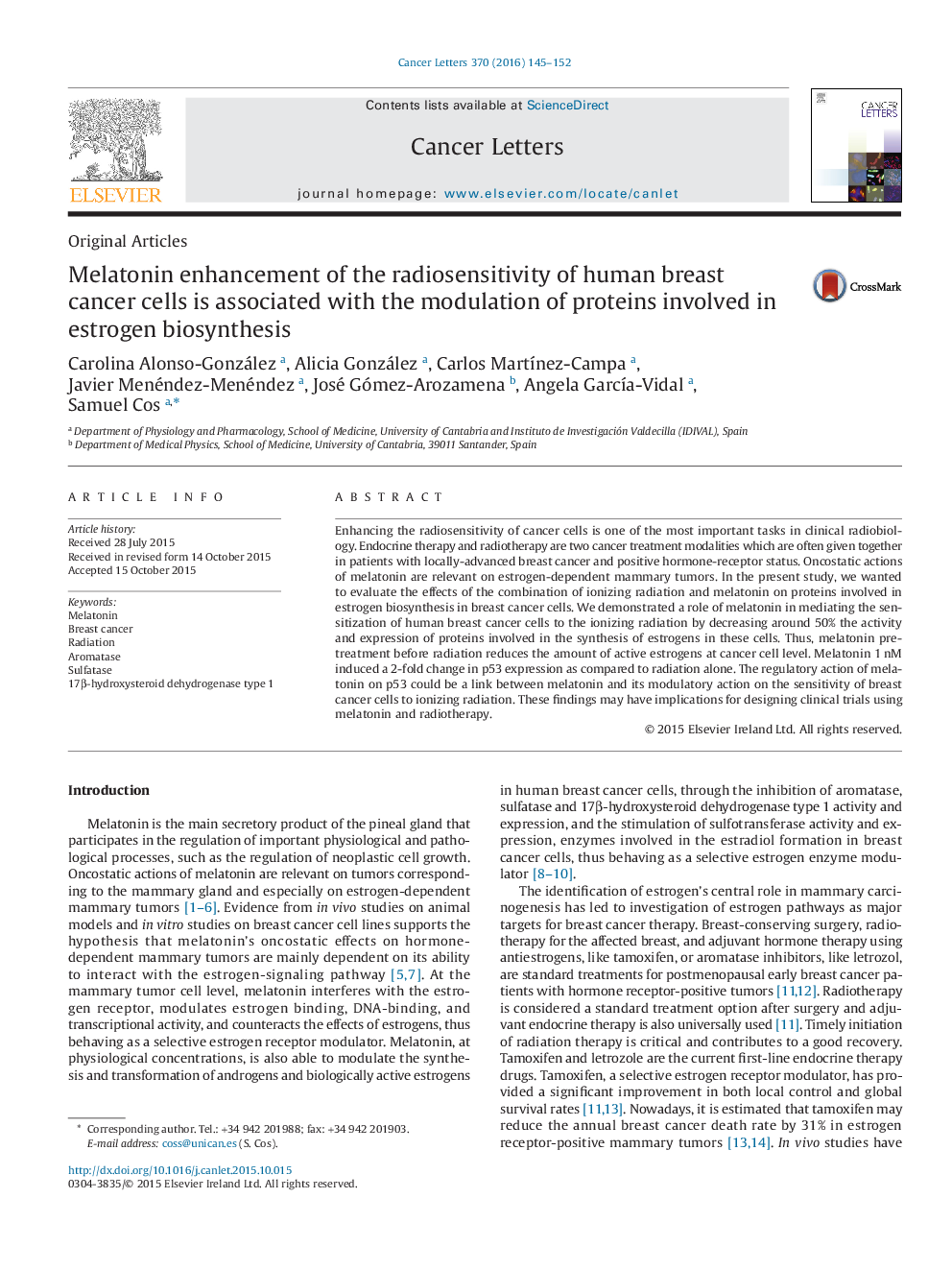| Article ID | Journal | Published Year | Pages | File Type |
|---|---|---|---|---|
| 2116138 | Cancer Letters | 2016 | 8 Pages |
Abstract
Enhancing the radiosensitivity of cancer cells is one of the most important tasks in clinical radiobiology. Endocrine therapy and radiotherapy are two cancer treatment modalities which are often given together in patients with locally-advanced breast cancer and positive hormone-receptor status. Oncostatic actions of melatonin are relevant on estrogen-dependent mammary tumors. In the present study, we wanted to evaluate the effects of the combination of ionizing radiation and melatonin on proteins involved in estrogen biosynthesis in breast cancer cells. We demonstrated a role of melatonin in mediating the sensitization of human breast cancer cells to the ionizing radiation by decreasing around 50% the activity and expression of proteins involved in the synthesis of estrogens in these cells. Thus, melatonin pretreatment before radiation reduces the amount of active estrogens at cancer cell level. Melatonin 1ânM induced a 2-fold change in p53 expression as compared to radiation alone. The regulatory action of melatonin on p53 could be a link between melatonin and its modulatory action on the sensitivity of breast cancer cells to ionizing radiation. These findings may have implications for designing clinical trials using melatonin and radiotherapy.
Related Topics
Life Sciences
Biochemistry, Genetics and Molecular Biology
Cancer Research
Authors
Carolina Alonso-González, Alicia González, Carlos MartÃnez-Campa, Javier Menéndez-Menéndez, José Gómez-Arozamena, Angela GarcÃa-Vidal, Samuel Cos,
